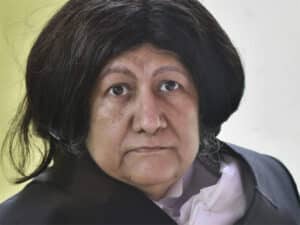AUTHORED BY- Akash Awana. a law graduate from the faculty of Law, Delhi University
Rohinton Fali Nariman, who recently retired, was the second senior-most judge of the Supreme Court of India leaving behind a legacy of merit and eminence. It may seem usual course regarding jurists retiring now and then but the story of Rohinton F. Nariman is not in that league. He has been an exceptional inspiration to the coming generation for his accomplishments and successfully preserving the legacy inherited from his father Fali S. Nariman, who is a renowned advocate at the Supreme Court of India and an internationally recognized Arbitrator.
EDUCATION AND CAREER :
Rohinton F. Nariman was born on October 13, 1956, to an eminent Indian jurist Fali S. Nariman whose life is in itself an extraordinary example of excellence. He began his journey from Cathedral and John Connon School in Mumbai. After completing his Bcom from Shri Ram College of Commerce, he graduated in law from Campus Law Centre, Faculty of Law, University of Delhi. He joined Harward School for an LL.M degree in 1980-81 under the guidance of stalwarts like Professor Laurence Tribe and Professor Unger. He practiced for a year in New York. In 1979, he joined the bar in India where he was ranked in the top ten lawyers of India by the Times of India and later on, he was promoted to be Senior Advocate at Supreme Court of India in December 1993 at the young age of 37. Rules were amended by Chief Justice Venkatchalaiah to designate him to seniority since the minimum age limit was 45.
More than 500 Supreme Court Judgment reported being credited on his name. He is an expert in Comparative Constitutional Law and Civil Law. At the age of 55, he was appointed as the Solicitor General of India. He worked on many important cases like the abolition of Section 66A of the IT Act, Right to Privacy case, Triple Talaq case, Joseph Shine case, etc
He was elevated as the Judge of the Supreme Court on 7 July 2014 and became the 5th Supreme Court Judge to be elevated directly from the Bar. He was the second senior-most Judge, retired on attaining the age of 65 years on 12th August 2021.
He has written The Inner Fire, a Zoroastrian religious book that is an analysis of Gathas (17 Avestan Hymns, core of Zoroastrian liturgy). A series of Volumes of Disorded Notes has also been written by Justice Nariman which include the dissenting opinions and judgments in the history of the Supreme Court of India.
SOME LANDMARK JUDGMENTS:
He has a list of numerous cases with landmark judgments where has contributed to impact society to a great extent with his judicial conscience and intellect. The following cases have been the part of such landmark judgments:
- Freedom of Speech Case: Shreya Singhal v. Union of India: In this case, two judges bench struck down a law under Section 66A of IT Act 2000 which gave the power to arrest anyone for posting emails or other electronic messages as it causes “annoyance and inconvenience”. The Bench called the law to be “Open-ended, undefined and Vague” and held it unconstitutional.
- Triple Talaq Case: A five-judge Bench including Justice Nariman struck down instant triple talaq by a 3–2 majority and termed it void, illegal, and unconstitutional. Justice Rohinton Fali Nariman’s judgment was against the practice of Triple Talaq where he called it disapproved form of divorce and recognized that Hanafi law says triple talaq is sinful. In 1937 Act recognizes triple talaq and hence does not violate Article 13. He further stated that It is not possible for the court to fold his hands when petitioners come to court. The practice of triple talaq is bad and can be tested as legislation.
- Right to Privacy Case: Justice Nariman was part of a nine-judge bench that ruled that right to privacy is a fundamental right and is an intrinsic part of the Right to Life and Personal Liberty under Article 21 of the Constitution.
- Sabarimala Review Petition Case: In the case of kantaru rajeevaru v. Indian young lawyers association; Justice Nariman along with Justice D.Y. Chandrachud delivered a dissent against the review petition of the Sabarimala Case as the judgment does not suffer any error and it is the constitutional obligation of the executive to implement the same. In this case, Justice Nariman stated as “Let every person remember that the ‘holy book’ is the Constitution of India and it is with this book in hand that the citizens of India march together as a nation, so that they may move forward in all spheres of human endeavor to achieve the great goals set out by this ‘Magna Carta’ or ‘Great Charter of India”,
FAREWELL TRIBUTES:
He has been regarded as the Constitutional Czar of India by an online law news portal which was re-affirmed by Attorney General KK Venugopal. Chief Justice of India considered him as the “one of the lions of Judiciary” on his farewell and said that the judiciary will miss his knowledge and intellect. Sr. Advocate and President of Supreme Court Bar Association requested to pay fitting tribute to Justice Nariman on retirement by appointing the Judges that he wanted to elevate. The whole legal fraternity came forward to bid adieu to Justice Nariman which in itself a symbol of the paramountcy of his intellect and knowledge in the field of law. He has kept the legacy of his father intact by upholding supreme work ethics and dedicated contribution to bringing substantial change in society through his landmark judgments. The generations of legal professionals are inspired and will cherish the thesaurus of his work.









